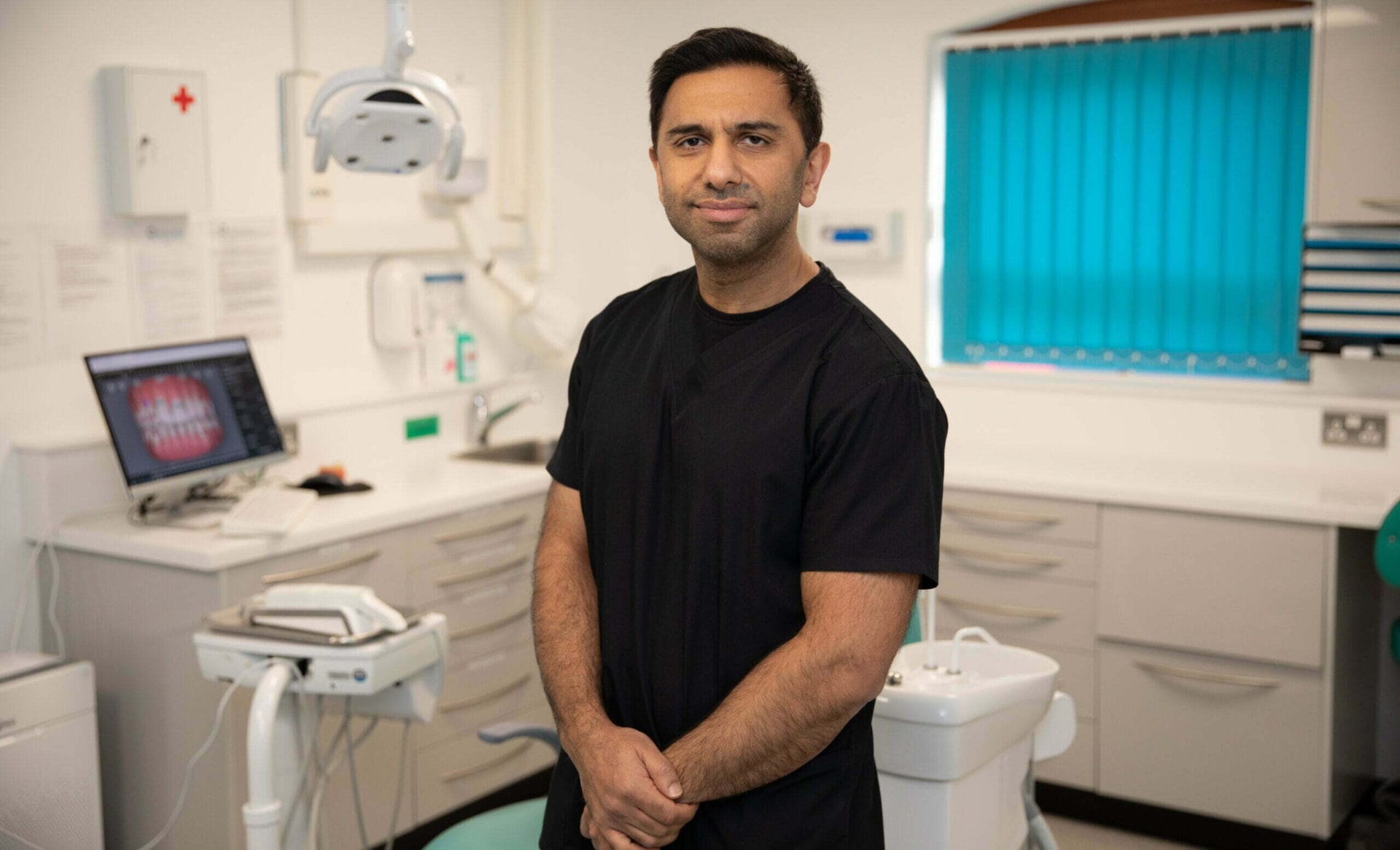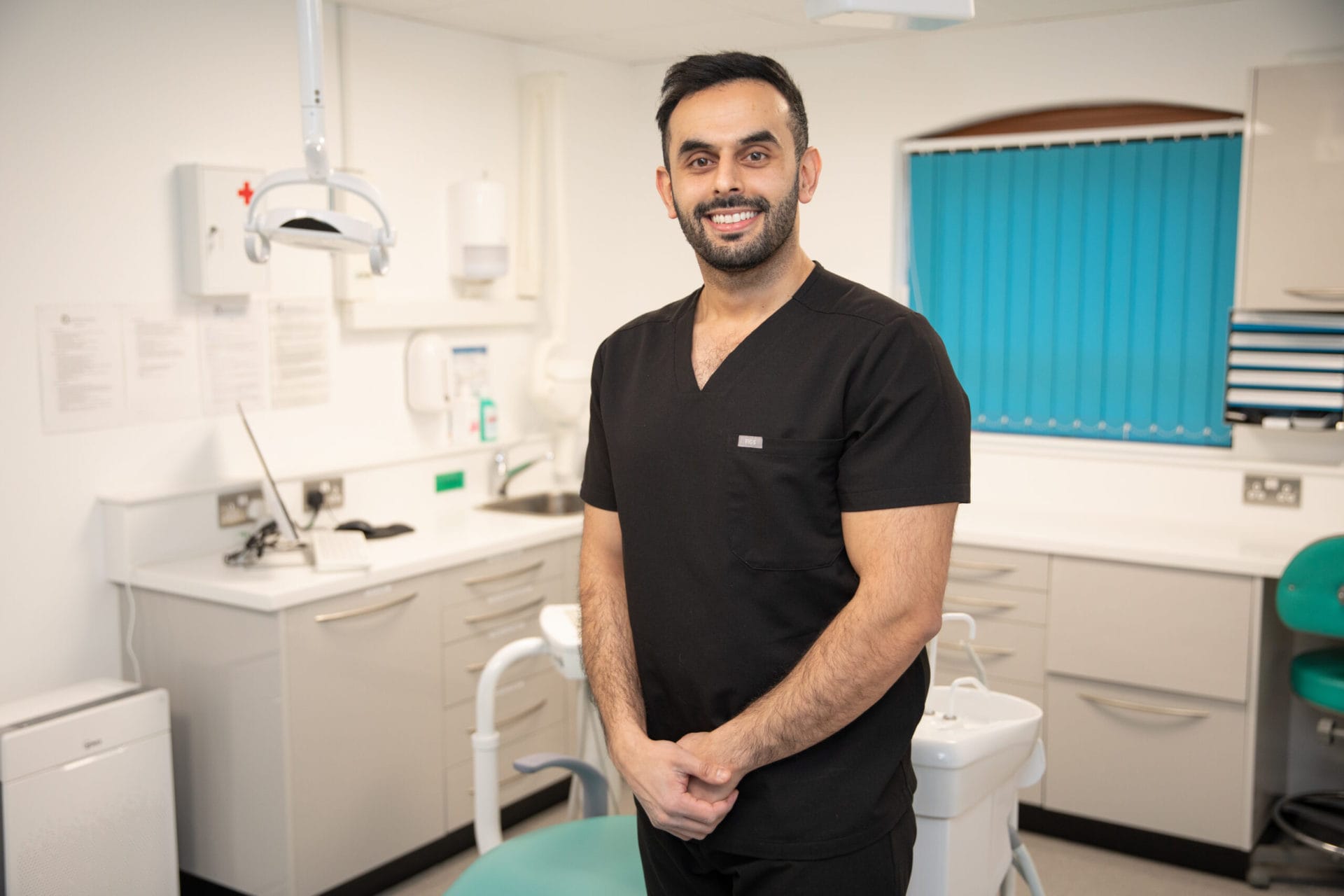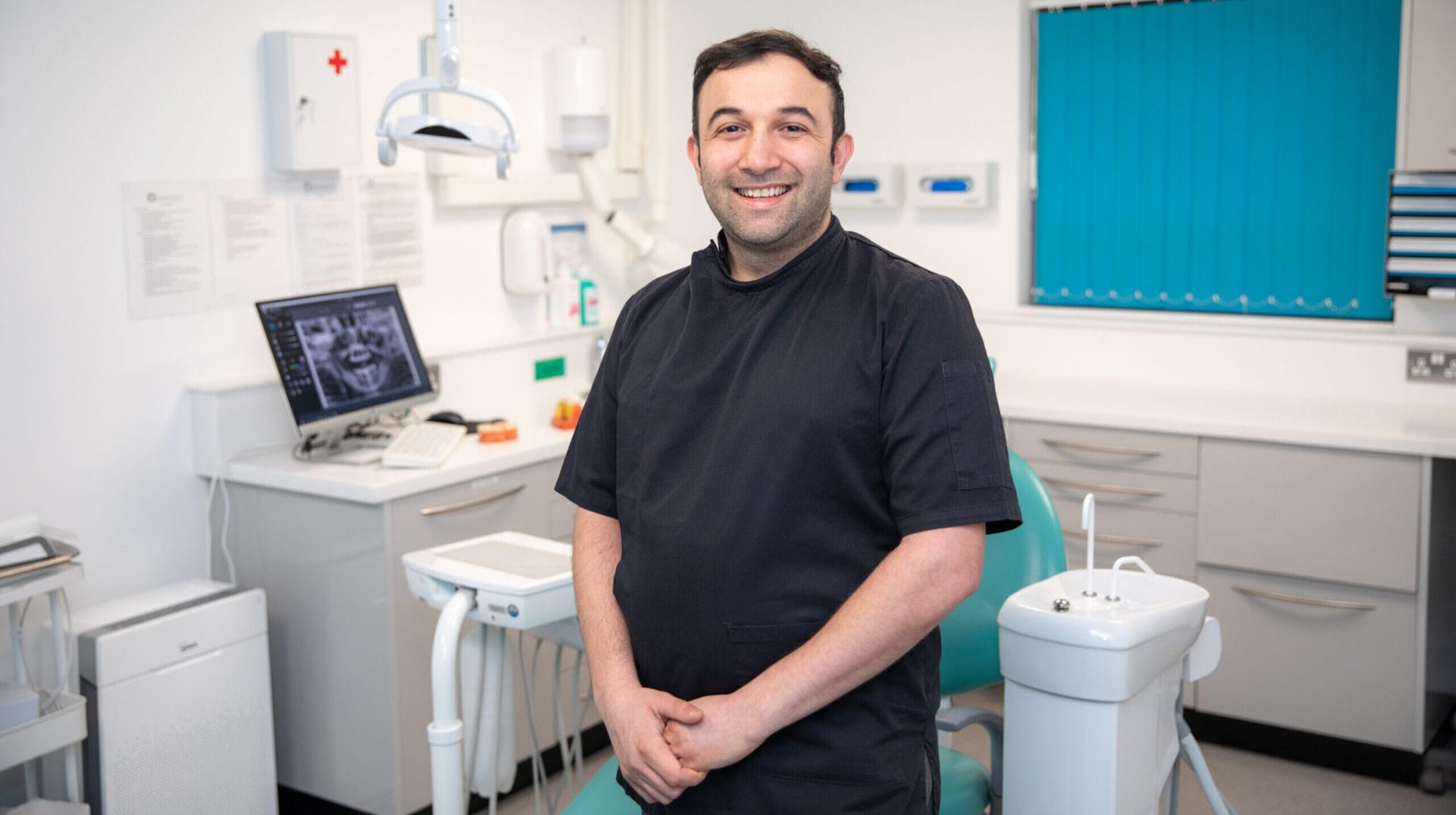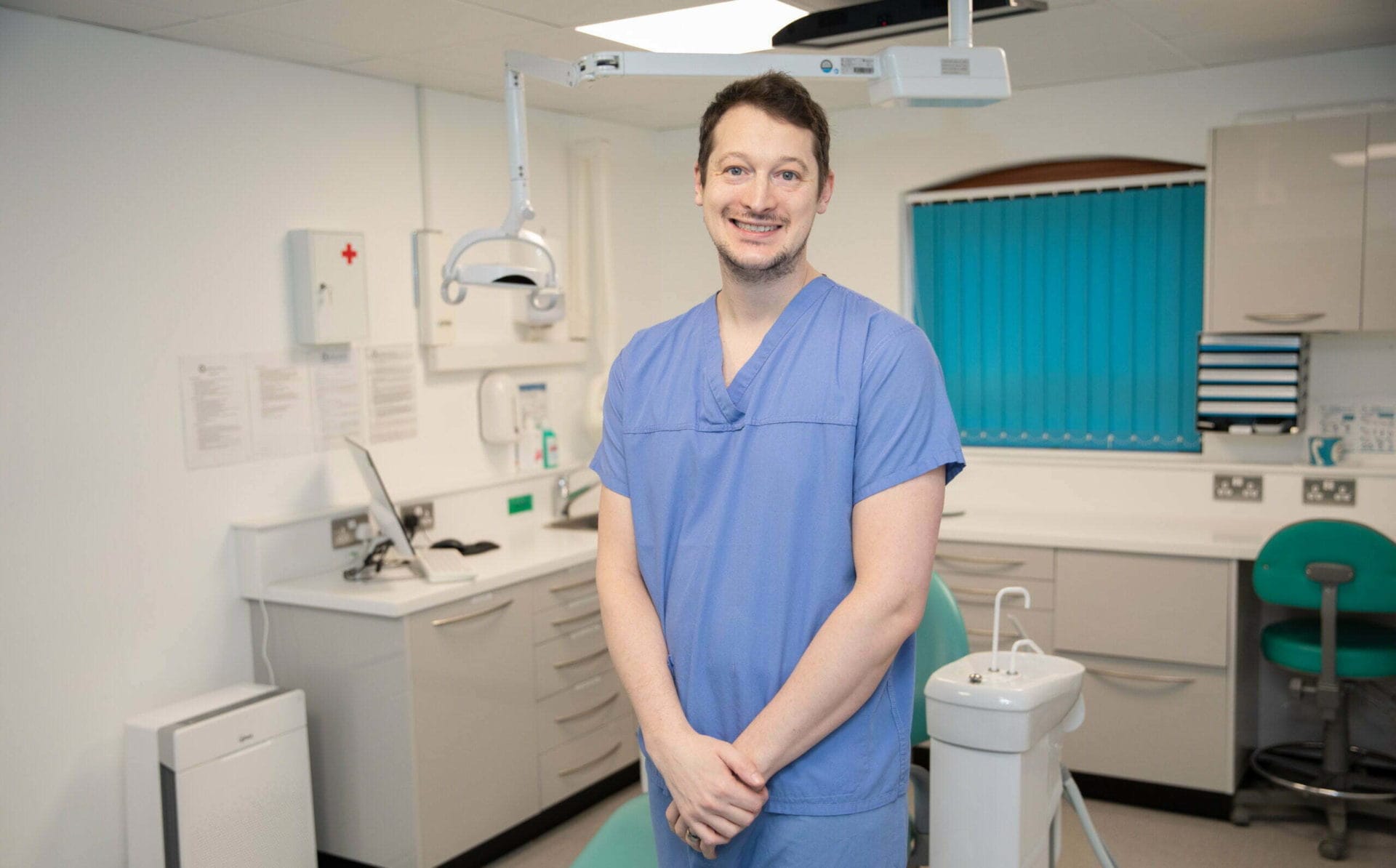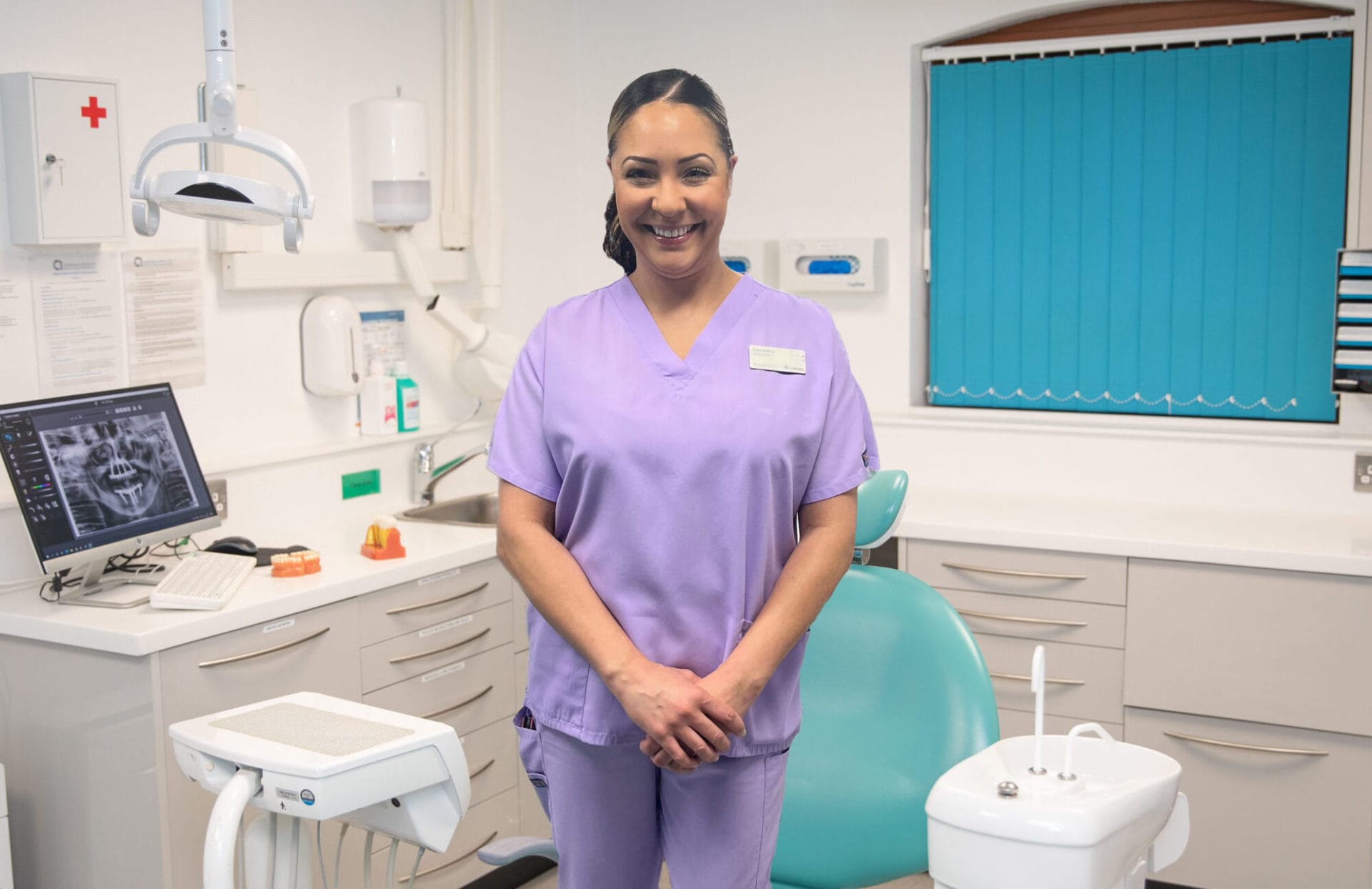Gum disease treatment in Leeds
Gum disease affects many adults, silently threatening your smile. With our modern approach and compassionate care, we’re here to guide you towards a healthier, happier smile. Let’s navigate the journey to better oral health together – book your consultation today for a brighter tomorrow.
- health
- prevention
- strenght

expert
care
transparent
pricing
friendly
team
Gum disease treatment - quick overview
- Removes infection and bacteria buildup
- Stops gum recession and tooth loss
- Reduces inflammation and bleeding
- Strengthens gums for long-term health
- Personalised treatment for every stage
Understanding gum disease
Gum disease, or periodontal disease or periodontitis, is a prevalent condition affecting many adults in Leeds. It occurs when plaque, a sticky film containing bacteria, accumulates on teeth and gums, leading to inflammation and infection. Gum disease can progress without proper treatment, causing irreversible damage to the gums and underlying bone structure.
We understand the importance of early detection and intervention to prevent the advancement of gum disease. Our modern techniques and compassionate care are tailored to address your specific needs, promoting healthier gums and preserving dental health for the long term.

When is gum disease treatment a good option?
If you have red, swollen, or bleeding gums
When you notice persistent bad breath or a bad taste
If your gums are receding or teeth feel loose
When you experience pain or sensitivity while eating
If plaque and tartar buildup are affecting your gum health
Recognising the signs of gum disease
Early detection of gum disease is a big part of setting up effective treatment. Common signs include:
Bleeding gums, especially during brushing or eating
Persistent bad breath
Receding gums
Increased tooth sensitivity
The formation of pockets between teeth and gums
If left untreated, gum disease can lead to more severe symptoms such as loose teeth and tooth loss. Our experienced team recognises and addresses these signs quickly, providing personalised care and guidance to manage gum disease effectively and restore oral health.

How is gum disease treated?
Treatment for gum disease focuses on removing plaque and tartar buildup through professional cleanings and scaling procedures. In more advanced cases, additional interventions may be necessary, such as root planing or gum surgery.
Healthy gums are essential for supporting teeth and maintaining overall oral health. By addressing gum disease early and promoting good oral hygiene habits, we can prevent further damage and preserve the integrity of your smile.
We prioritise your health and well-being at every turn, offering comprehensive gum disease treatment options tailored to your exact individual needs.
Why choose Aesthetique for gum disease treatments?
At Aesthetique, we provide expert gum care using advanced techniques to stop infection, reduce inflammation, and restore gum health.
Our personalised treatment plans target the root cause of gum disease, preventing further damage and protecting your smile. With state-of-the-art technology, gentle deep cleaning methods, and a dedicated team, we ensure effective, comfortable care. Plus, our ongoing support helps you maintain strong, healthy gums for life.
Frequently Asked Questions
Have questions about gum disease treatment in Leeds? Check our most common ones here or give us a call if you can’t find what you need.


Love your smile again
We’re committed to helping you achieve and maintain the best possible oral health. Our friendly and caring team of private dentists in Leeds provides personalised gum disease treatments designed to address your unique needs and concerns. From early detection to advanced interventions, we’re here to support you every step of the way on your journey to healthier gums and a brighter smile. Book your consultation today and enjoy a confident, healthy smile for years to come.
Trusted by patients in Leeds


